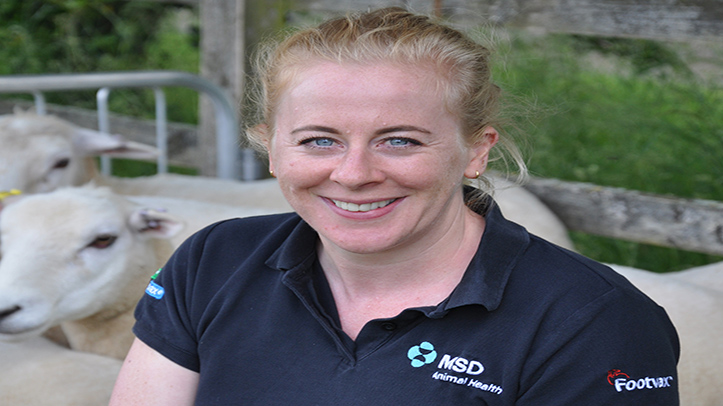MSD Animal Health UK Limited has launched its 2026 FlockCheck diagnostic scheme, giving sheep farmers across England, Scotland and Wales the opportunity to test their flocks for exposure to toxoplasmosis and enzootic abortion (EAE) from December 1, 2025.
This year, the popular subsidised service is opening earlier than usual to help both early and later lambing flocks identify potential causes of early lamb losses. The scheme, which closes on June 30, 2026, enables farmers to work with their vet to gain valuable insights into key reproductive diseases that can significantly impact flock productivity and profitability.
Dr Kat Baxter-Smith, veterinary advisor at MSD Animal Health, said launching earlier this year will give farmers more time to investigate potential flock health issues before breeding.
“By starting the scheme in December instead of February, farmers and vets can get ahead of problems, identify disease risks sooner and make informed management and vaccination decisions before the next breeding season.”
Farmers can take part by asking their vet to collect blood samples from six to eight aborted, unvaccinated ewes, or from barren ewes or those producing weakly lambs. The results help vets and farmers make informed flock health decisions and target vaccination and management strategies effectively.
According to Dr Baxter-Smith, the scheme continues to highlight the widespread nature of these costly and preventable diseases.
“Data from our 2025 FlockCheck results, which closed in June 2025, showed that 79% of 400 tested flocks had been exposed to Toxoplasma gondii and 35% tested positive for exposure to Chlamydia abortus, the cause of enzootic abortion.
“These findings are consistent with APHA disease surveillance data showing that between 2016 and 2025, toxoplasmosis and EAE ranked as the top two most frequent sheep submission diagnoses. They also support our 2024 Flock Health Survey of 966 sheep units, which found that more than 30% of GB flocks either didn’t know their barren ewe rate or reported a rate greater than 5% after lambing. This is particularly concerning.”
Dr Baxter-Smith explained that both infections can have a serious impact on lambing performance. “Toxoplasmosis, caused by infection with the Toxoplasma gondii parasite, doesn’t just cause abortion – it’s also a major cause of early embryo loss, barren ewes and weak or sickly lambs. Almost all flocks in Great Britain are likely to have been exposed, so every breeding ewe should be considered at risk.”
She added that biosecurity alone is not enough to prevent infection.
“Sheep become infected by ingesting parasite eggs shed by cats onto pasture, feed or water. These eggs are extremely resilient and can survive in the environment for over a year. That’s why vaccination is the most effective way to protect the flock,” she explained.
Dr Baxter-Smith added: “Fortunately, the disease can be controlled effectively by a simple vaccination programme. Ideally, every ewe should be vaccinated before breeding because of the widespread disease threat and the significant financial implications.
“Both toxoplasmosis and enzootic abortion are also classified as NOAH Category 1 diseases, meaning vaccination should be considered standard practice on all sheep farms.”
How to get a diagnosis
Sheep farmers interested in taking advantage of the subsidised FlockCheck scheme are encouraged to contact their vet to discuss arranging a test.


